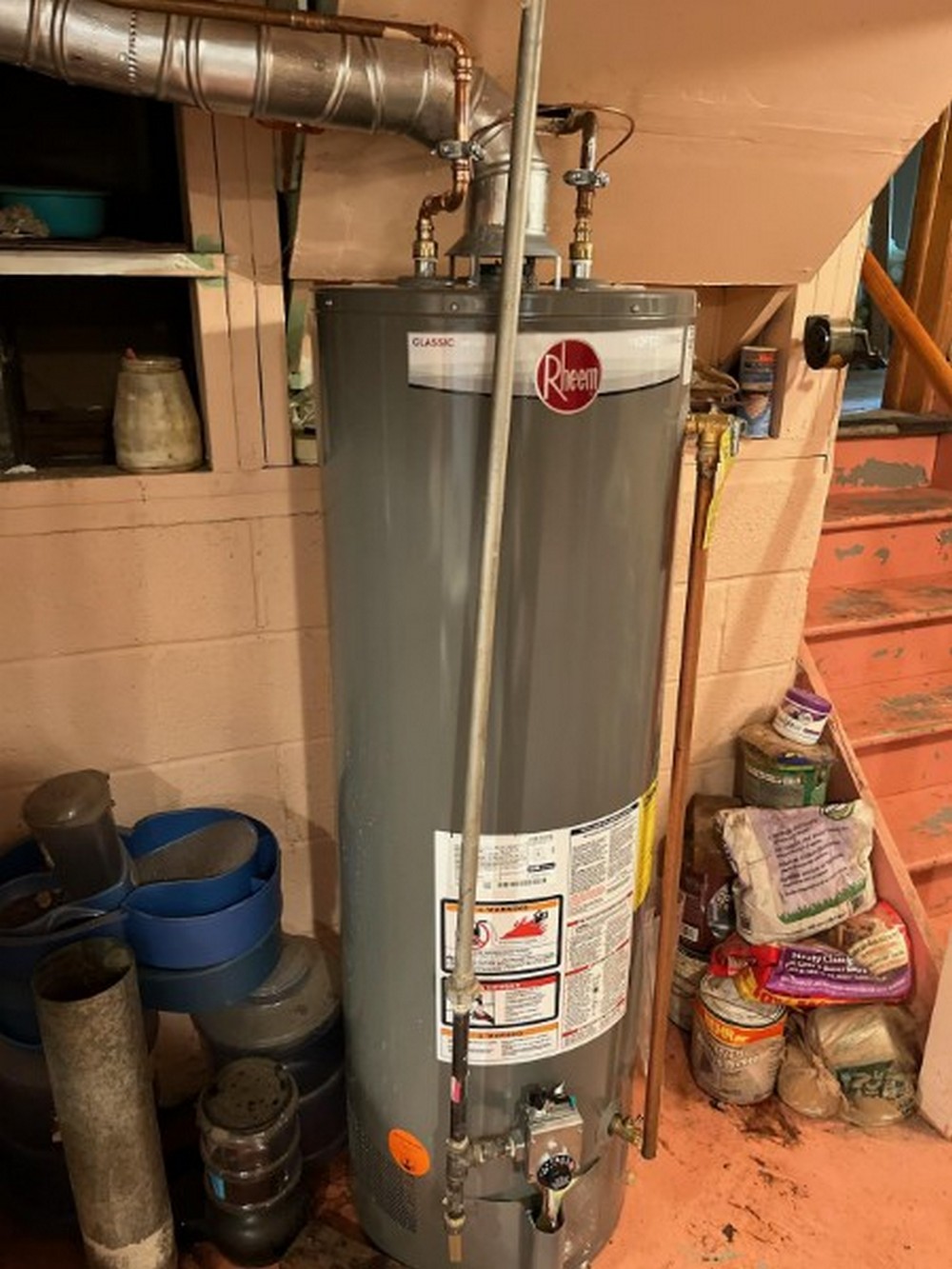Certified Gas Leak Repair for Your Peace of Mind and Security
Certified Gas Leak Repair for Your Peace of Mind and Security
Blog Article
Complete Guide to Water Heating SystemInstallment and Replacement
Comprehending the details of water heater installment and substitute is critical for home owners looking for to ensure efficiency and integrity in their warm water supply. From choosing the ideal type and size to executing a seamless installation process, a number of elements should be considered to stay clear of common mistakes.
Sorts Of Hot Water Heater
When taking into consideration hot water heater setup and substitute, it is necessary to comprehend the different types of hot water heater readily available on the market. One of the most typical kinds consist of tank hot water heater, tankless hot water heater, heatpump hot water heater, and solar water heating systems.
Container hot water heater are traditional systems that save a certain quantity of warm water, making them conveniently available when required. They are typically less pricey in advance yet may sustain greater energy expenses over time as a result of heat loss. In contrast, tankless hot water heater supply hot water as needed, eliminating the requirement for storage space. They are energy reliable and can save area, yet their preliminary costs are typically greater.
Heatpump hot water heater utilize power to move heat from the air or ground to warmth water, providing considerable power savings yet needing even more room and specific setup problems. Finally, solar water heating units harness solar energy to warm water, giving an environmentally friendly option with potential long-lasting cost savings, although they often require a backup system for cloudy days.
Recognizing these choices guarantees notified decisions concerning installation and substitute, providing to particular demands and choices.
Picking the Right Dimension
Selecting the appropriate size for a hot water heater is essential to ensure optimum performance and performance. A device that is as well small will certainly have a hard time to meet family demands, leading to irregular warm water schedule and boosted energy intake. Conversely, an extra-large water heating unit can result in unneeded power waste and greater utility costs.
To establish the best dimension, take into consideration the family's peak warm water use. This can be determined based upon the number of owners and their common warm water needs. A family of four might call for a water heating unit with an ability of 50 to 80 gallons, depending on the usage patterns, such as simultaneous showers and washing.
Additionally, assess the recuperation price, which measures exactly how promptly a heater can renew warm water after it has actually been utilized. For tankless versions, concentrate on the flow rate, measured in gallons per minute (GPM), to ensure it satisfies the home's synchronised need.

Installment Process Overview

Following, the old system should be separated and eliminated, taking treatment to adhere to local codes and regulations regarding disposal. As soon as the old system is out, the new water heater can have a peek at this site be placed in place. This action includes linking the water system lines, making sure that all fittings are safe and secure and leak-free.
After developing water connections, it's necessary to link the power supply, whether electrical or gas, following the supplier's instructions diligently. When all links are made, the system must be filled up with water, and the power can be transformed back on. Finally, it is very important to look for leakages and make sure the hot water heater is working appropriately before finishing the installation process.
Typical Setup Mistakes

Another frequent blunder is disregarding to follow regional codes and regulations. Failing to adhere to these standards can not just lead to security risks however might additionally result in pricey penalties or the need for pricey reinstallation.
Stopping working to safeguard connections or making use of the incorrect kind of fittings can lead to leakages and water damages. By preventing these usual installation errors, homeowners can ensure their water heating system runs securely and visit this website efficiently, optimizing efficiency and longevity.
Upkeep Tips for Durability
Proper maintenance of a water heating unit is necessary for its long life and optimum efficiency. Regular assessments and maintenance can stop pricey repairs and extend the appliance's life expectancy. Begin by examining the temperature setup; it needs to typically be established between 120 ° F and 140 ° F for optimum energy effectiveness and security.
Every six months, purge the storage tank to eliminate sediment build-up, which can harm heating performance and trigger corrosion. To do this, shut off the heating system, attach a hose to the drain find this shutoff, and allow the water run until it is clear.
When they are corroded,Anode poles ought to be inspected every year and replaced. These rods assist protect against tank rust by bring in corrosive aspects in the water.
Furthermore, check the stress alleviation valve regularly to ensure it is working appropriately. This shutoff is essential for preventing too much stress build-up within the storage tank.
Lastly, take into consideration scheduling an expert upkeep check every couple of years for extensive inspections and servicing. By sticking to these upkeep ideas, house owners can significantly improve the effectiveness, safety and security, and life-span of their hot water heater, making certain trusted warm water for several years to find.
Conclusion
Finally, appropriate setup and upkeep of water heaters are important for guaranteeing efficiency and long life (pipe repair). Selecting the appropriate type and dimension, sticking to installment standards, and staying clear of common blunders dramatically add to optimal efficiency. Routine upkeep checks and expert servicing help sustain capability and avoid pricey repair services. By recognizing these essential facets, home owners can attain a trusted warm water supply while reducing possible issues connected to hot water heater procedure.
Comprehending the complexities of water heating system setup and replacement is vital for home owners seeking to ensure performance and dependability in their hot water supply.Tank water heating units are conventional systems that save a particular quantity of hot water, making them easily offered when required. In contrast, tankless water heaters supply hot water on demand, eliminating the need for storage. Picking a water heating unit that is either too tiny or as well large can lead to ineffectiveness, resulting in insufficient warm water supply or extreme power consumption.
By recognizing these necessary elements, house owners can attain a trustworthy hot water supply while minimizing possible issues associated to water heating system operation. gas leak repair.
Report this page